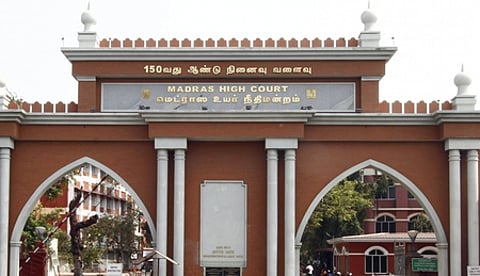

CHENNAI: The Madras High Court has ruled that tapping of phones of individuals in a covert operation to detect crimes amounts to violation of the right to privacy, which is an integral part of the fundamental right to life guaranteed under Article 21 of the Constitution.
However, the court said tapping can be done on the occurrence of a public emergency or in the interest of public safety as per the law.
Justice N Anand Venkatesh delivered the ruling on Wednesday, allowing a 2018 petition filed by P. Kishore, Managing Director of Everron Education Limited, a Chennai-based company. The petition challenged a Ministry of Home Affairs (MHA) order dated August 8, 2011, which had authorised the tapping of his mobile phone in connection with a case involving the alleged bribing of an Income Tax (I-T) officer to evade taxes.
The MHA issued the authorisation under Section 5 (2) of the Telegraph Act, 1885, and Rule 419-A of the Telegraph Rules, 1951.
"Telephone tapping constitutes a violation of the right to privacy unless justified by a procedure established by law. Section 5(2) of the Act authorises interception of telephones on the occurrence of a public emergency or in the interests of public safety. Both these contingencies are not secretive conditions or situations,” the court observed.
Holding that the impugned order does not fall within the ambit of either 'public emergency' or 'in the interests of public safety,' the court stated that tapping the petitioner's phone for a covert operation does not come under Section 5(2) of the Telegraph Act.
Justice Venkatesh held that the impugned order is unconstitutional and beyond jurisdiction; in addition to violating Article 21 of the Constitution, it is also ultra vires Section 5(2) of the Act and the mandatory provisions of Rule 419-A.
He stated that the intercepted conversations shall not be used for any purpose whatsoever, although the CBI may proceed with the other evidence it has gathered.
The petitioner was booked by the CBI on August 29, 2011, along with Additional Commissioner of Income Tax Andasu Ravinder and his friend Utham Bohra, after the former was “trapped” while accepting a bribe of ₹50 lakh from the latter, through whom Kishore had allegedly routed the payment to avoid action for tax evasion.